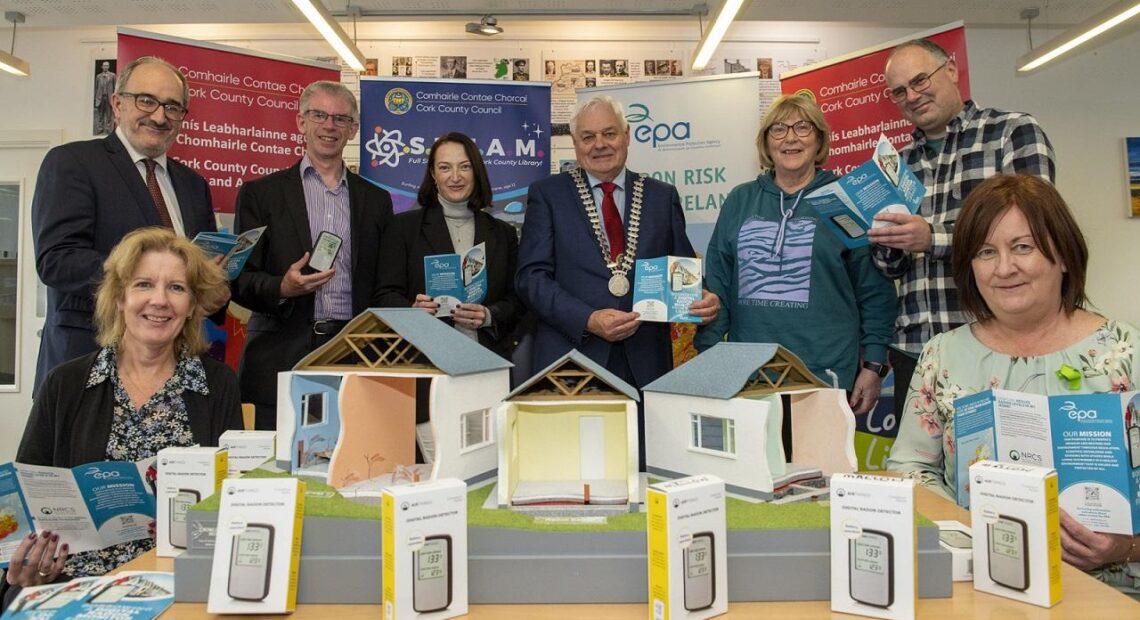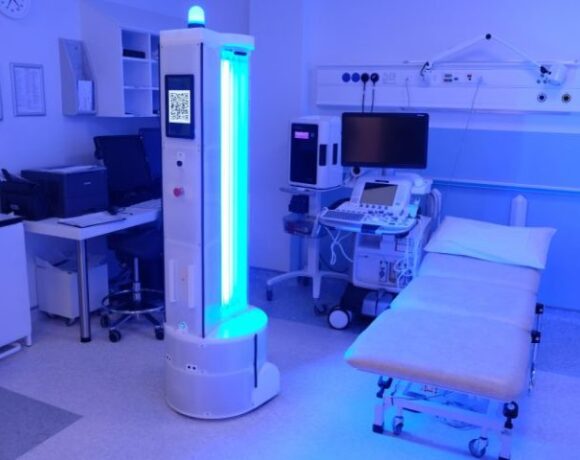The Environmental Protection Agency (EPA) and Cork County Council’s Library and Arts Service launched a library loan scheme of digital radon monitors and is calling on householders in County Cork to take the first step to protect themselves and their families from radon, a cancer-causing radioactive gas. Many areas in County Cork are at high risk – with one in five homes in those areas likely to have high levels of radon.
Radon is the second biggest cause of lung cancer, after smoking. The gas comes from rocks and soil in the ground under your home and can seep in through small cracks the foundations or gaps around service pipes. It has no smell, colour or taste. Outdoors, radon quickly dilutes to very low concentrations, but when it enters an enclosed space, such as a house, workplace or other building, it can accumulate to unacceptably high concentrations.
Speaking about the launch of the library loan scheme, Mayor of the County of Cork Cllr. Frank O’Flynn said, “with many parts of Cork known to have high indoor radon levels, I welcome the introduction of this loan scheme. The availability of radon digital monitors in our libraries will make it easier for everyone to take the first step in protecting their families from this harmful gas. I encourage people to borrow a monitor from their local library to help protect their family’s health.”
Andy Fanning, EPA programme manager said, “exposure to high levels of radon can cause lung cancer and many families in Cork are unknowingly living with this silent killer in their homes. It is estimated that about 350 lung cancer cases every year in Ireland are linked to radon exposure. If high levels are identified, they can normally be reduced simply and this will immediately reduce the risk to you and your family.”
Borrowing a monitor – in the same way as you borrow a book for three weeks – will give a good indication of radon levels in a home. To get an accurate measurement of radon levels, a three month test is required. You can visit www.radon.ie to get further information on testing your home and reducing high levels to keep you and your family safe.
Source: Cork County Council













